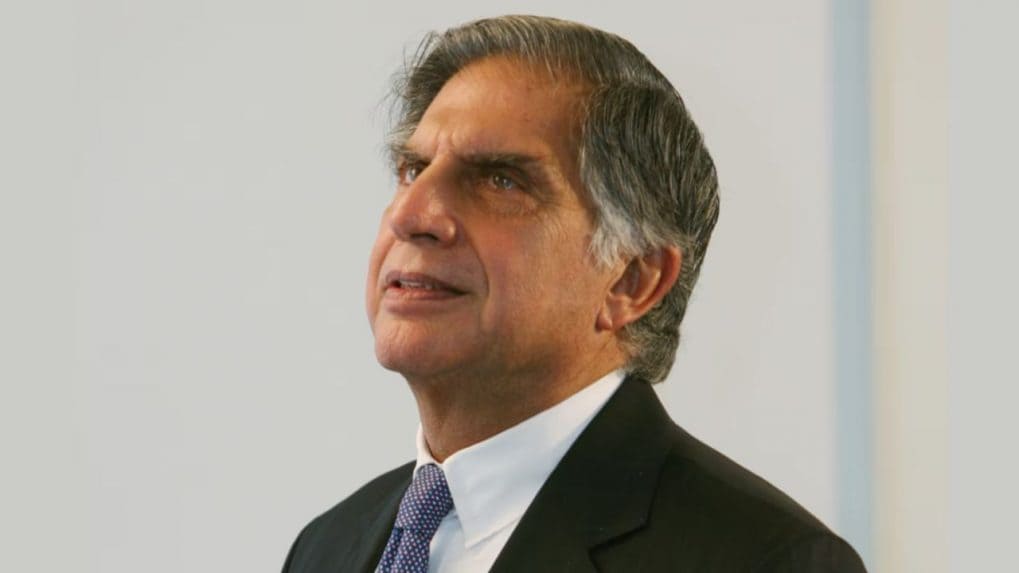Advertising
From Pink Slips to Silent Sidelining: Inside adland’s layoff and anxiety crisis

At the 2025 edition of the Storyboard18 Delhi Literature Festival, a quietly powerful conversation unfolded between biographer Dr. Thomas Mathew and Storyboard18 Editor Delshad Irani. The subject was not simply a book, but a legacy - Ratan Tata: A Life, a published biography that offers an intimate lens on one of India’s most reserved yet revered industrialists.
Over the course of the discussion, Mathew unraveled the story of a man defined less by his wealth or position than by restraint, resilience, and a deep-seated ethical compass. Ratan Tata, who helmed the Tata Group for over two decades, emerged in the conversation not as a tycoon, but as a man still shaped by childhood trauma and a profound sense of moral duty.
His parents’ separation when he was just six years old left emotional wounds that, Mathew suggests, never fully healed. Raised by his grandmother, Lady Navajbai Tata - a woman of stern but compassionate principles - young Ratan absorbed values that would come to define his life and leadership. “She would even slide apology notes under his door if she felt she had erred,” Mathew recalled, highlighting the household’s quiet adherence to dignity and humility.
These formative experiences, Mathew noted, explain Tata’s emotional reticence and ambivalence toward long-term relationships, despite several meaningful connections. “Each time he took two steps forward, he took two steps back,” Mathew said, pointing to the shadows of abandonment that followed him into adulthood.
Religion, too, was a matter of introspection rather than display. When questioned about why he refrained from donning the traditional Parsi headwear, Tata’s response was characteristically understated: “Why do I need external manifestation?” For him, faith remained internal - a guiding framework of “good thoughts, good words, good deeds.”
One of the most scrutinized chapters of Tata’s career - the launch of the Tata Nano - was also among the most philosophically revealing. Though often labeled a commercial failure, the compact car project was, according to Mathew, never about margins. “Nano wasn’t about profits. It was about purpose,” he said.
The vehicle, aimed at providing affordable and safe transport to India’s middle and lower-income families, spurred what industry observers called the “Nano Revolution.” Its legacy - frugal engineering - has since influenced domains far beyond automobiles, including aerospace and medical technology. Today, Nano prototypes sit in design museums around the world, serving as artifacts of innovation rooted in human need rather than corporate ambition.
Mathew also addressed the internal turbulence that followed Tata’s retirement. Reflecting on the appointment of his successor, Cyrus Mistry, Tata later acknowledged a critical lapse. And that was his decision to stay out of the selection process. “I wanted others to feel comfortable… I should have been there,” he told Mathew.
Mistry’s tenure was marked by underperformance across key companies, and, more consequentially, a diminished capacity for the Tata Trusts - which own a controlling stake in Tata Sons - to carry out their philanthropic mission. Disturbed by what he viewed as a drift from the Group’s founding ideals, Tata intervened. “He’s a man of ethical moorings,” Mathew said, noting that the Tata Code of Conduct, introduced in the 90s, predated many similar frameworks in global corporations.
Long dogged by questions about his bloodline, Tata’s identity within the broader Tata legacy was finally affirmed through meticulous research by Mathew. Tracing the lineage back to Bhikka Tata, the biographer confirmed that Ratan Tata is the only chairman of the conglomerate both by name and by blood to its founder, Jamsetji Tata.
Yet despite his stature, Tata lives without ostentation. No diamonds. No extravagant lunches. “Opposite his house, there’s a shabby little pizza joint,” Mathew said with a chuckle. “That’s where he used to get his lunch sometimes. Just pizza and French fries.”
The world often confuses visibility with value. But Ratan Tata’s life offers a different kind of measure. One that favors purpose over power and integrity over image.
From purpose-driven work and narrative-rich brand films to AI-enabled ideas and creator-led collaborations, the awards reflect the full spectrum of modern creativity.
Read MoreLooking ahead to the close of 2025 and into 2026, Sorrell sees technology platforms as the clear winners. He described them as “nation states in their own right”, with market capitalisations that exceed the GDPs of many countries.